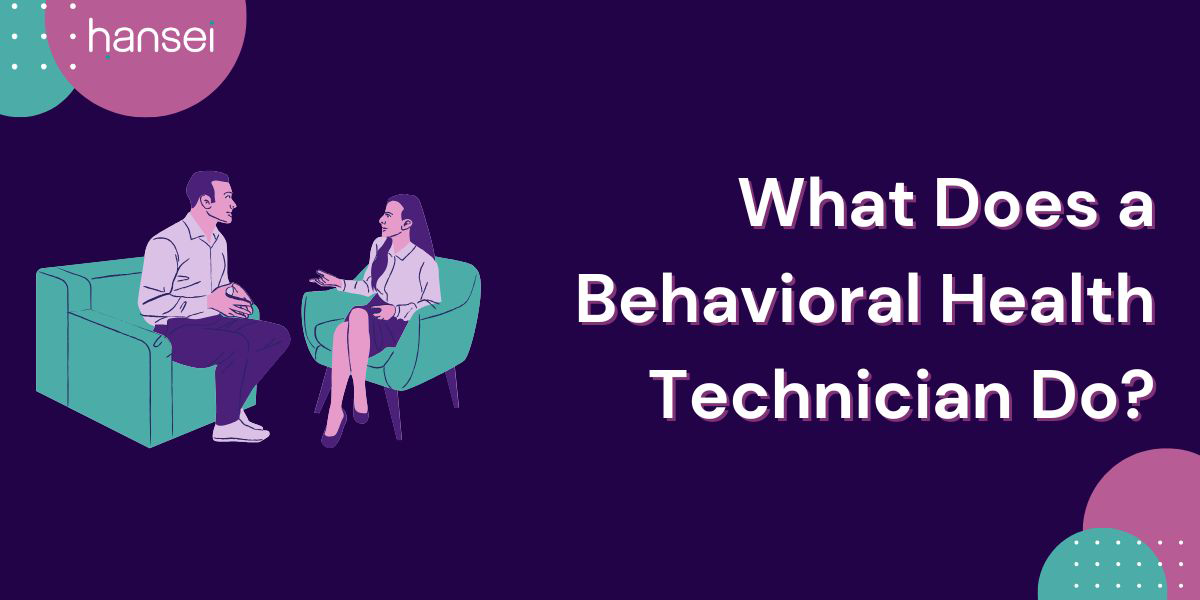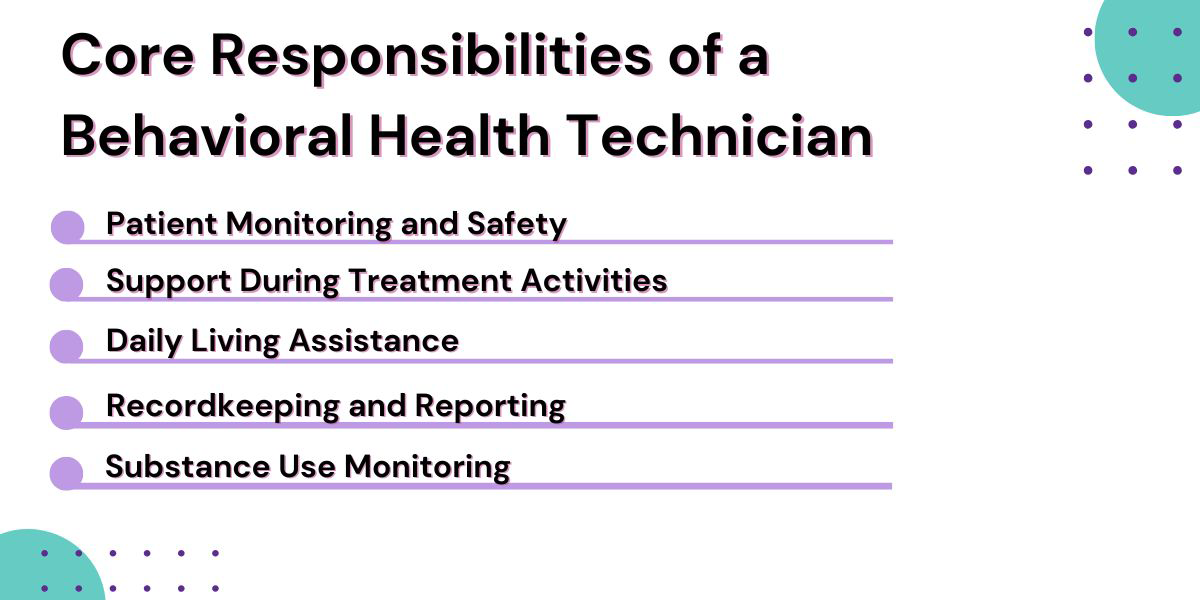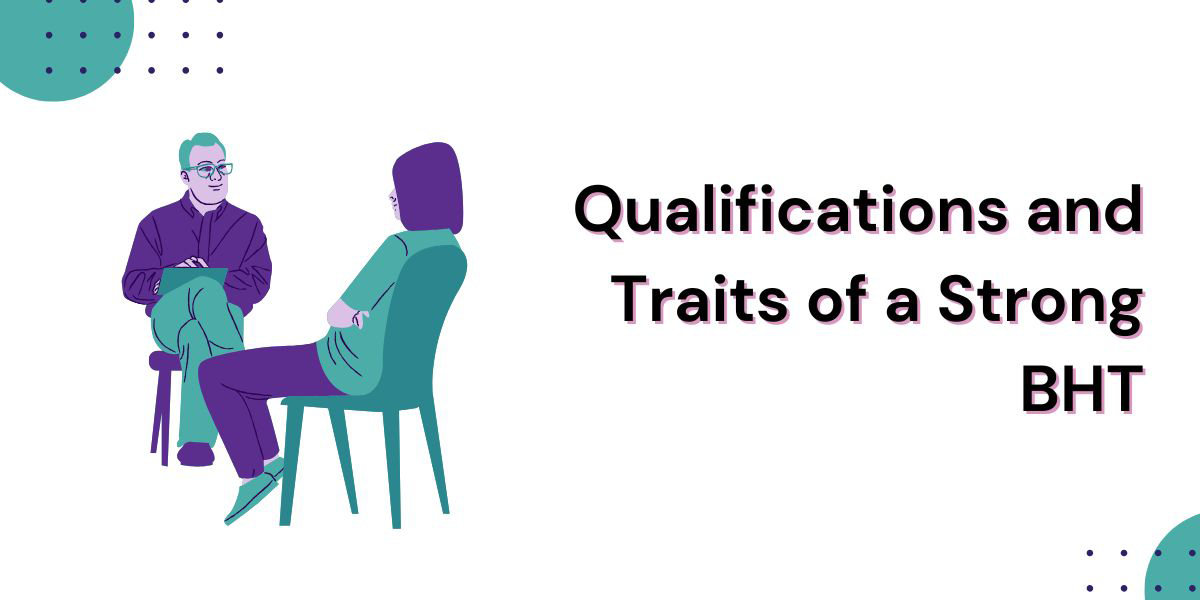Blog

In the behavioral healthcare field, a wide range of professionals work together to support patients through treatment and recovery. One of the most essential—but sometimes overlooked—roles is that of the Behavioral Health Technician (BHT). At Hansei Solutions, where we specialize in supporting behavioral health and addiction treatment facilities, we know how important BHTs are to the success of both clinical outcomes and operational performance.
So, what exactly does a Behavioral Health Technician do—and why is their role critical to the behavioral healthcare ecosystem?
A Frontline Role in Patient Care
Behavioral Health Technicians (sometimes called psychiatric technicians, mental health technicians, or behavioral health aides) are on the front lines of patient care in mental health and addiction treatment settings. They work under the supervision of licensed clinicians—like therapists, counselors, and psychiatrists—to help monitor, support, and guide patients through their treatment journey.
Unlike therapists or case managers, BHTs spend a significant amount of time with patients during their day-to-day routines. This gives them a unique perspective on patient behavior and progress.

Core Responsibilities of a Behavioral Health Technician
While responsibilities may vary depending on the setting (inpatient, outpatient, detox, residential, etc.), BHTs typically perform a blend of clinical support, observational tasks, and hands-on assistance.
Patient Monitoring and Safety
- Conduct routine checks to ensure patient safety, especially in residential or inpatient settings.
- Observe and document behaviors, moods, and interactions to inform clinical treatment planning.
- Intervene calmly during emotional or behavioral crises, following de-escalation protocols.
Support During Treatment Activities
- Escort patients to and from group therapy, medical appointments, or recreational activities.
- Assist therapists or clinicians during group sessions or workshops as needed.
- Encourage participation in daily programming and provide motivation or redirection.
Daily Living Assistance
- Help patients with everyday tasks such as hygiene, meals, room upkeep, and medication reminders.
- Maintain a structured, therapeutic environment to support recovery and stability.
Recordkeeping and Reporting
- Accurately document shifts, patient activities, incidents, and behavioral changes in EMRs or paper charts.
- Report urgent concerns to supervisors or licensed staff to ensure prompt intervention.
Substance Use Monitoring
- In addiction treatment settings, BHTs may assist with drug testing (urinalysis collection), breathalyzer tests, and inventorying personal belongings during intake.
Where Do BHTs Work?
Behavioral Health Technicians are employed across a wide spectrum of treatment settings, including:
- Inpatient psychiatric hospitals
- Residential treatment centers
- Outpatient clinics and PHP/IOP programs
- Detox facilities
- Crisis stabilization units
- Adolescent or dual diagnosis programs
At Hansei Solutions, we work with behavioral health providers in all of these settings—so we understand how the role of a BHT may vary depending on acuity level and patient population.

Qualifications and Traits of a Strong BHT
Most Behavioral Health Technicians hold at least a high school diploma or GED, and many employers prefer candidates with experience in mental health, addiction, or human services. Some states require specific certifications (such as Certified Behavioral Health Technician or CBHT), and CPR/first aid training is often required.
More than anything, though, a successful BHT must have:
- Strong interpersonal skills – to build rapport and trust with patients
- Emotional resilience – to manage the demands of a high-touch care environment
- Adaptability – to respond calmly to unpredictable behaviors or crises
- Team-oriented mindset – to collaborate with clinical and administrative staff
- Attention to detail – for accurate charting and monitoring
Why BHTs Matter More Than Ever
In a time when mental health and substance use challenges are on the rise, the demand for qualified behavioral health professionals—including BHTs—is growing rapidly. They play a crucial role in maintaining safe, supportive environments that facilitate healing and stability.
From an operational standpoint, facilities that invest in BHT training, retention, and workflow integration tend to experience:
- Better patient outcomes
- Fewer safety incidents or emergency escalations
- More accurate documentation for billing and compliance
- Higher overall patient satisfaction
At Hansei Solutions, we help providers optimize not just billing and revenue, but the entire care ecosystem—because quality outcomes begin with a strong, empowered team. That includes the people doing the work day in and day out: Behavioral Health Technicians.
Supporting the Backbone of Behavioral Care
While they may not always get the spotlight, BHTs are the foundation of behavioral healthcare delivery. They combine empathy, structure, and practical support to keep treatment moving forward—day after day.
By understanding and supporting the BHT role, providers can improve clinical effectiveness, reduce staff burnout, and ensure a higher standard of care. And at Hansei, we’re here to help behavioral health organizations strengthen every part of their operations—from the revenue cycle to the real-life frontline.

Ready to focus on providing healthcare? Let us lighten your load.
We’re here to address your pain points and create growth opportunities for your organization. We’re passionate about what we do, and it shows in every interaction. Learn what makes us tick and schedule a demo today.